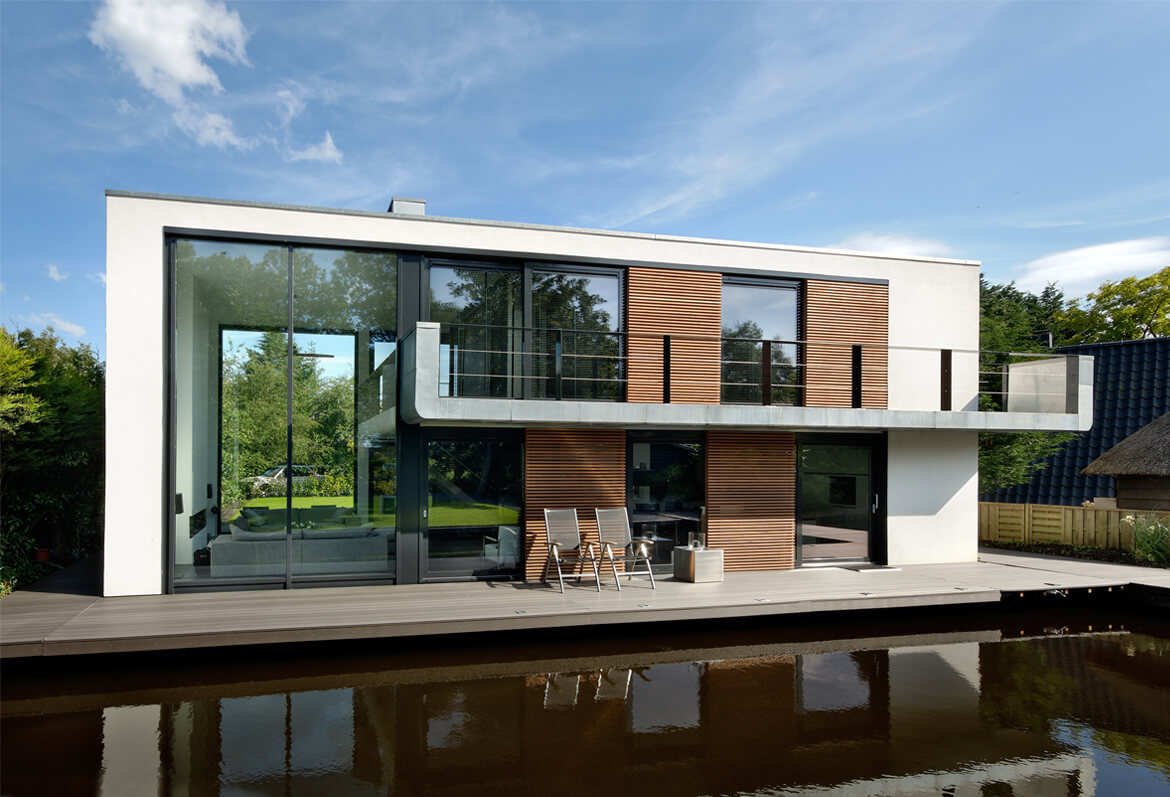Long for a sea change? Buy a house boat
By Alina Dizik
BBC
September.28.2014
When Soren Terkelsen moved to a houseboat with his wife and two young children seven years ago, he wasn’t prepared for a front-row seat of Copenhagen’s winter storms.
“All of a sudden the ship turns into a steel thing that you cannot control,” said the 44-year-old. “We were completely new to this and had a lot of surprises.”
For Terkelsen, taking care of the M/S Arno, a 50-year-old boat that was refurbished into a family home, wasn’t immediately intuitive. In fact, there was much to learn about the new lifestyle.
The boat requires a new coat of paint with the rust scraped off every few years, the septic tank needs to be emptied regularly and there are mooring restrictions that dictate where he can keep the vessel.
Still, living close to the city without the chaos, while enjoying the serenity unique to waterside living—like watching geese and other water birds fly past — is hugely rewarding, he said.
“I really love it,” said Terkelsen, who recently started Copenhagen Boats, a boat-rental business.
For those who’ve long dreamed of living on the water, owning a houseboat is within reach. Many refurbished boats are on the market in waterfront cities including Seattle, San Francisco, Amsterdam, Stockholm and Copenhagen. And, new luxury communities are in various stages of development in Dubai, the Maldives and Miami. Houseboat prices can run from $200,000 into the millions, depending on the location and the level of luxury.
Architects say homes that float on the water can rise and fall with the tides, keeping buyers safe from flooding and rising water levels due to climate change. “It’s a unique lifestyle,” said Rick Miner, a Seattle-based real estate broker who specializes in floating homes and has lived in one for 23 years.
How to find it
After 25 years spent working in the hospitality industry in Vancouver, Canada, Ben de Vries knew he wanted to return to Holland and live in one of Amsterdam’s famous houseboats. But finding a boat wasn’t easy.
In cities like Amsterdam, licensed boats docked within city limits can be difficult to find because there are so few lots along the city’s waterways. After a long search, de Vries bought an old boat in 2001 for €120,000 ($92,850), which didn’t quite fit his idea of a dream houseboat because it was cramped and in need of an upgrade.
But, the old boat was well worth the price, he said, as the purchase included the valuable docking space license, or ligplaats, which in Amsterdam is sold together with the boat. Places to moor the boat in this Dutch city are fixed and cannot be changed to a different location, similar to purchased land. De Vries eventually purchased a new boat for €110,000 ($85,115) to put in the same space.
The hassle was worth it. While some houseboat communities on the city’s most popular canals can be loud, De Vries says he lives in a quieter part of the city and enjoys the diversity of his houseboat community. “They are usually interesting people that live on houseboats,” he said.
He also loves being close to nature. “I see big fish swimming around,” he said. “You’re more exposed to the elements.”
Due to limited docking space, competition for house boats is fierce in most markets, according to Koen Olthuis, founder of Waterstudio, an architecture firm in Deft, Holland that specializes on over-water projects.
Miner says that only six or seven boat properties per year are available for sale in Seattle and range from $700,000 to $1 million. By comparison, in Amsterdam, with an estimated 2,500 houseboats, there are more properties for sale and small older boats can sell for €200,000 ($154,750).
Finding a houseboat on your own can be difficult, so it is advisable to find a real-estate agent that specialises in houseboat sales. In the Maldives, for instance, Christie’s is selling 185 new floating villas, which start at $1 million and are in the first phase of completion, said Olthuis, who helped create the project.
Fees and maintenance
If you’re thinking of taking the plunge, there are some financial considerations to take into account.
The newest floating homes are built on a hollow concrete barge that can be towed to other locations but can’t be moved independently. But, because many floating homes and houseboats aren’t equipped with the engines, mechanics or navigation systems of boats, upkeep costs can be lower than a fully functioning water vessel of a similar size.
Monthly upkeep of your houseboat can cost from $200 to $600 for mooring fees and maintenance. Most owners pay monthly homeowner dues that cover water, sewer and dock maintenance. Those who own their docking spot, don’t pay a monthly mooring fee.
Houseboat owners are required to pay personal property taxes similar to home ownership on land. And, many houseboat communities also provide parking for homeowners as part of the monthly dues. But, in some areas, the saltwater can eat away at the floating home and require expensive upkeep well into the thousands of dollars, so budgeting for longer term, one-off or occasional expenses is also a good idea. When getting a mortgage, insurance in a must and is only slightly higher than homeowners insurance on land, mostly due to more possible weather damage. In the US, houseboat insurance averages about $1,500 annually.
Life on the water
If you think a houseboat will provide solitude, think again. Floating homes have their own neighbourhoods and provide a sense of community with other owners because they are rarely moved from one place to the next.
People “don’t realize how similar it is to normal housing,” said Olthuis, whose firm focuses entirely on overwater properties. “People still think it’s something futuristic.”
However, some of the comforts of home differ and require some adjustment. For one, bringing groceries or items back to the boat is often an acquired skill because you need to walk along a jetty. Odd jobs around your houseboat will also be different to those on land. A septic tank filled with used water needs to be properly emptied and cables that attach the boat to land must be checked frequently to prevent a boat coming loose during high winds.
Decorating is also a unique consideration. Some regular furniture can be an odd fit into the houseboat’s curved rooms, says Terkelsen, which means furnishing it could be more interesting — but more expensive — than a house on land. Some companies including the US-based Bradd and Hall specialize in furniture in marine settings.
How to finance it
Financing a home on the water is different than purchasing a home on land.
In the US, smaller banks located near houseboat communities such as those in the Northwest will help buyers get a mortgage, but most homes are bought for cash, said Miner. With a mortgage, most boat purchases require a 20% down payment, he said. Such mortgages require special inspections that can cost up to $800 and involve a dive survey of the outside part of the home, which is a cost covered by the buyer and should be factored into closing costs.
In Amsterdam, to close on sale, boats need to be examined in a shipyard outside of the water. Not all banks around the world offer houseboat mortgages. Instead, buyers may need to take out a secured loan, which is similar to a mortgage and gives more favourable terms because the borrower pledges collateral for the loan.
An added return
With so many curious travellers, one perk to owning a houseboat is that they are easy to rent out.
This year, Terkelsen and his family moved back on land to start renting out their Copenhagen houseboat online. Bookings are already filled for the next three months, providing a healthy income stream.
Renting out a room on his Amsterdam boat also helps De Vries offset the extra expense of living on the water, while allowing him to share his love of the water with travellers. Guests enjoy the novelty of booking a room at Ben’s Boat and Breakfastand being only 10 minutes away from the center of town, said De Vries who rents one of his bedroom suites for €95 ($123) per night.
“It’s a rewarding business,” he said.


